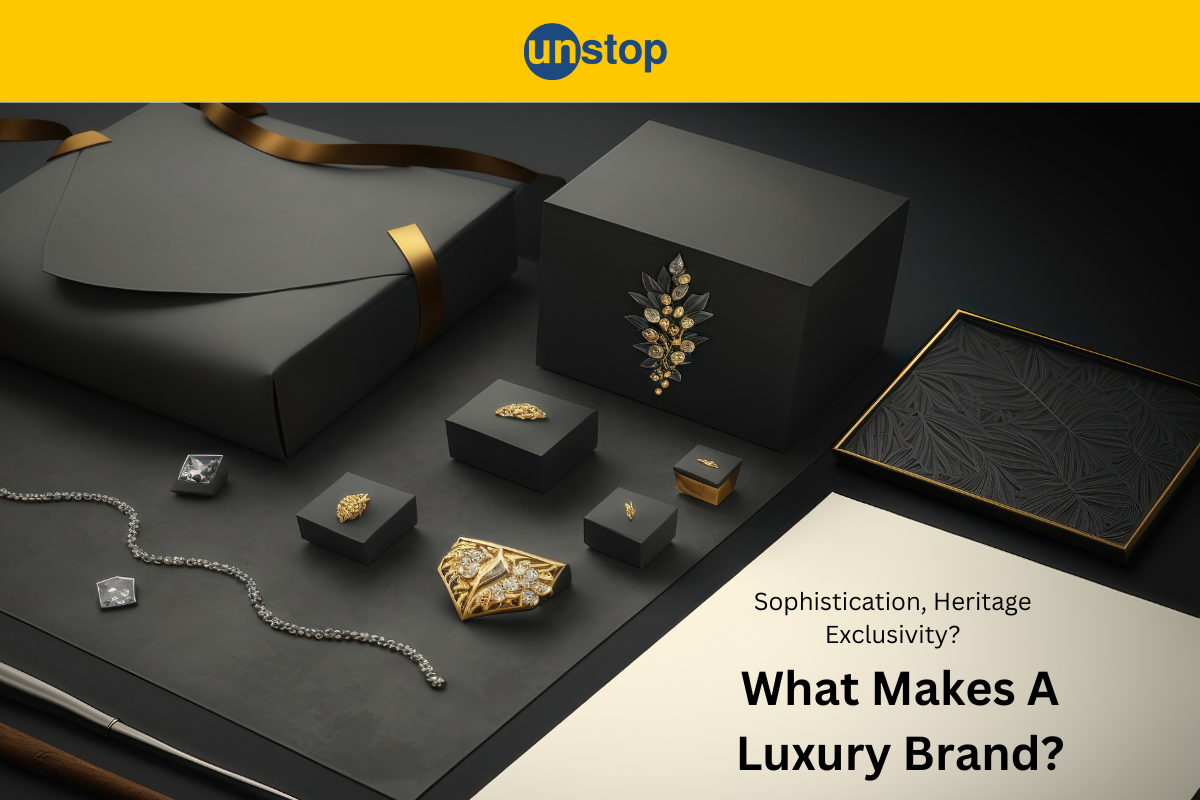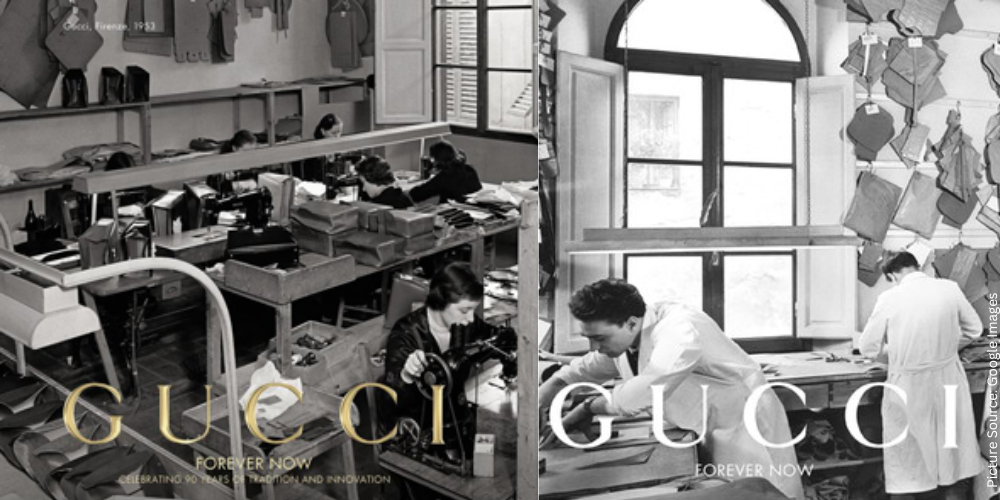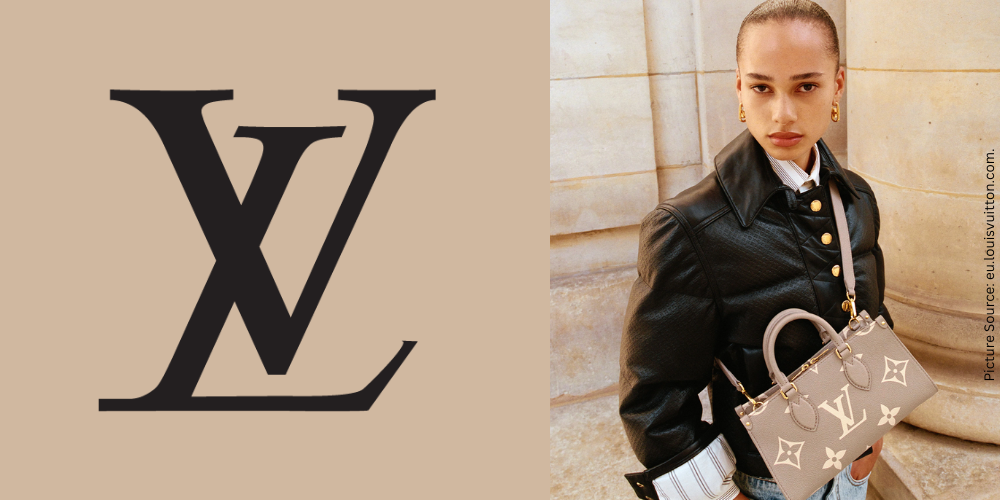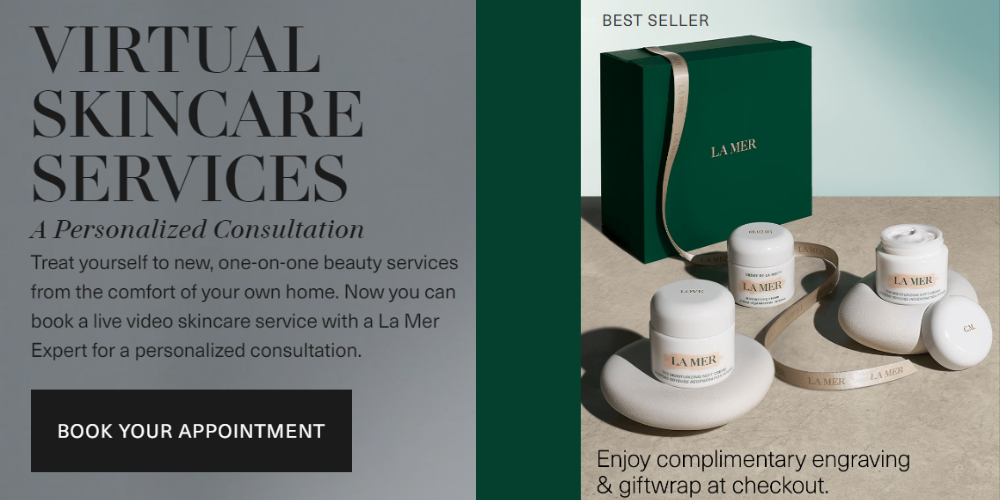- What is a luxury brand?
- Features of Most Luxury Brands
- Upcoming Trends in Luxury Brands
- Conclusion
Luxury Brand: Understand Its Meaning & What Goes Behind The Opulence

"Luxury is not about what you own, but how it makes you feel."
In a world where status and style go hand in hand, luxury brands hold a special allure. From opulent fashion houses to exquisite fragrances, these labels epitomize sophistication and refinement. But what truly sets luxury brands apart from the rest? This article covers the captivating realm of luxury, exploring its definition in the modern world, the influence of heritage on perception, and how exclusivity shapes the image of luxury brands.
Learn the ins and outs of Brand Management - Register for our 360-degree course today!
What is a Luxury Brand?
Defining luxury today goes beyond mere material possessions; it encompasses an experience that evokes a sense of indulgence and pleasure. Luxury goods have the ability to transcend utility and become symbols of prestige.
A luxury brand is a brand that offers products or services of exceptional quality, exclusivity, and prestige. These brands are known for their superior craftsmanship, attention to detail, and use of high-quality materials. Luxury brands often have a long history and heritage, and they are associated with a certain level of sophistication and elegance. Owning or using a luxury product is seen as a symbol of wealth, success, and taste.
Overall, c It offers consumers a unique and luxurious experience through its products, retail environments, and marketing efforts. Whether it's a designer handbag, a high-end watch, or a luxury hotel stay, indulging in a luxury brand is a way to experience the finer things in life.
Also Read: What is a Brand?
Characteristics of Luxury Brands
Luxury brands are known for the following features:
Craftsmanship
Craftsmanship is a defining characteristic of luxury brands, setting them apart from mass-produced goods. These brands prioritize quality and attention to detail, ensuring that every product is meticulously crafted to perfection.
From the selection of the finest materials to the skillful handiwork of expert artisans, luxury brands go above and beyond to create exquisite pieces that exude elegance and sophistication. One example of a luxury brand that is known for their craftsmanship is Hermès.
Hermès, a French luxury fashion brand, has been synonymous with quality and craftsmanship for over 180 years. The brand is renowned for their handcrafted leather goods, particularly their iconic Birkin and Kelly bags. Each bag is meticulously crafted by skilled artisans, who spend hours working on every detail, from cutting the leather to stitching and finishing. The result is a product that is not only beautiful but also built to last.
Heritage
The heritage of a luxury brand is a crucial aspect that sets it apart from others in the market. It represents the brand's history, values, and traditions, which are often passed down through generations.
One example of a luxury brand with a rich heritage is Gucci. The Gucci 90th anniversary ad holds great significance for the brand's heritage. This advertisement not only celebrates Gucci's long-standing history but also showcases their craftsmanship and attention to detail. As a luxury fashion house, Gucci has been known for their impeccable quality and timeless designs, and this ad serves as a reminder of the brand's commitment to excellence.
The ad highlights Gucci's heritage by featuring iconic pieces from the brand's archives, paying homage to the craftsmanship that has been the foundation of Gucci's success for the past 90 years. By showcasing these classic designs, the ad not only appeals to Gucci's loyal customer base but also attracts new customers who appreciate the brand's rich history and heritage.

Exclusivity
The point about luxury is that everyone shouldn’t be able to afford it. This makes it exclusive. Luxury brands are known for their exclusivity, as only a select few can afford their products. This exclusivity adds to the allure and desirability of these brands, making them even more special. When a luxury brand limits the availability of its products, it creates a sense of scarcity and rarity, increasing its perceived value.
For example, Rolex watches are known for their high quality and prestige, and they are also highly exclusive. Rolex carefully controls the distribution of their watches, making them available only through authorized dealers. This limited availability creates a sense of exclusivity and rarity, as not everyone can easily purchase a Rolex watch. Additionally, Rolex often produces limited edition models or special editions, further enhancing their exclusivity. These limited production runs make certain Rolex watches even more desirable and sought after by collectors and enthusiasts. Overall, the exclusivity of Rolex adds to the brand's appeal and elevates their perceived value in the luxury market.

Brand Identity
A luxury brand's brand identity is crucial in establishing its position in the market and attracting its target audience. It encompasses the unique characteristics, values, and personality that differentiate the brand from its competitors.
For example, Louis Vuitton, a renowned luxury brand, has a strong brand identity that exudes elegance, sophistication, and exclusivity. Their iconic monogram pattern and logo are instantly recognizable and associated with luxury and high-quality craftsmanship. The brand's identity is further reinforced through collaborations with artists and designers, as well as their commitment to sustainability and social responsibility. This consistent brand identity helps to maintain the brand's exclusivity and appeal to affluent consumers.

Exceptional Customer Experience
Exceptional customer experience is a crucial aspect of luxury brands. These brands go above and beyond to provide a personalized and unforgettable experience for their customers.
Let’s take the example of Taj Hotels, which is a prime example of a luxury brand that delivers exceptional customer experience. Known for their grandeur, and attention to detail, Taj goes above and beyond to create unforgettable experiences for their guests and ensure that each guest feels like royalty during their stay. With their commitment to exceptional customer experience, Taj Hotels has earned a reputation as one of the leading luxury hotel brands in the world.
Is Luxury Subjective?
Luxury is subjective and can vary across different cultures and individuals. What may be considered a luxury brand in one country or community may not hold the same status in another. Additionally, the definition of luxury is constantly evolving, with new brands emerging that challenge traditional notions of luxury. For instance, Fabindia. Fabindia is a retail company that specializes in selling traditional Indian garments, home furnishings, and organic food products. While some may argue that luxury is often associated with high-end designer brands and extravagant prices, Fabindia challenges this notion by offering a different kind of luxury experience.
Fabindia focuses on promoting sustainable and ethical practices, showcasing the craftsmanship of local artisans, and preserving traditional Indian techniques. Their products are made from natural materials and feature intricate handwork, showcasing the rich cultural heritage of India. For many customers, the luxury lies in owning a piece of India's history and supporting the livelihoods of these skilled artisans.
What sets Fabindia apart is their ability to redefine luxury by prioritizing authenticity, sustainability, and community empowerment. While their products may not have the same level of opulence as some international luxury brands, they offer a unique and meaningful luxury experience that resonates with a specific audience.
Understand the nuances of brand management with Unstop Pro! Get details
Upcoming Trends in Luxury Brands
Homeware by High-End Fashion Labels
Luxury brands are not limited to fashion and accessories; they have expanded their reach into the realm of homeware. Prominent luxury fashion labels have ventured into creating exquisite home decor collections that embody their signature style and craftsmanship.
These high-end fashion labels bring their expertise in design, quality materials, and attention to detail to create luxurious homeware pieces. From intricately embroidered cushions to opulent dinnerware sets, these brands offer a seamless extension of their brand identity into the realm of interior design.
By venturing into homeware, luxury brands tap into a new market segment and cater to affluent consumers who seek a cohesive aesthetic throughout their lifestyle. These beautifully crafted pieces not only elevate the ambiance of living spaces but also serve as status symbols for those who appreciate fine craftsmanship.
Sustainability and Ethical Practices in Luxury Brands
Luxury brands have traditionally been associated with opulence, exclusivity, and indulgence. However, in recent years, there has been a growing emphasis on sustainability and ethical practices within the luxury industry. This shift is driven by an increasing consumer demand for products that align with their values and a recognition of the environmental and social impact of luxury brands.
One significant aspect of sustainability in luxury brands is the adoption of eco-friendly methods throughout the production process. Luxury brands are now investing in research and development to find innovative ways to reduce their carbon footprint, minimize waste, and use sustainable materials. For instance, some luxury fashion houses are incorporating recycled or upcycled materials into their designs, reducing reliance on virgin resources.
For instance, Prada Re-Nylon. It is an innovative initiative by the luxury brand Prada that focuses on sustainability and ethical practices. The project involves the transformation of nylon waste into a regenerated nylon fabric, which is then used to create a range of products, including bags, accessories, and even clothing.
Prada Re-Nylon products not only showcase the brand's commitment to sustainability but also embody their luxury aesthetic. The collection features sleek designs and iconic Prada detailing, making it a desirable choice for conscious consumers who value both style and ethics.
By embracing these eco-friendly methods, luxury brands can not only reduce their impact on the environment but also cater to consumers who prioritize sustainability. As sustainability and ethical practices become more prominent concerns, luxury brands will need to prioritize transparency and social responsibility. Consumers are demanding greater accountability from the brands they support, pushing for environmentally friendly practices, fair labor conditions, and ethical sourcing of materials. Brands that align with these values will have a significant advantage in capturing the attention and loyalty of consumers.
Experience over Luxury
The luxury sector is constantly evolving, and staying ahead of upcoming market shifts is crucial for brands to maintain their competitive edge. One major trend that we can expect to see in the future is a shift towards experiential luxury. Experiential luxury is a growing trend driven by a desire for deeper connections, personal growth, and authentic experiences. Consumers are increasingly valuing experiences over material possessions, seeking unique and memorable moments that money can't buy. Luxury brands will need to adapt by creating immersive experiences that go beyond just products. The following ad by Taj Hotels perfectly embodies the concept of experiential luxury through their focus on exploring culture and connection with nature.
Personalizing Luxury
There is a growing demand for personalization in the luxury sector. Consumers want products and experiences that feel tailored specifically to them, reflecting their individual tastes and preferences. This presents an opportunity for brands to leverage technology such as artificial intelligence (AI) and data analytics to gather insights about their customers and create personalized offerings. From customized products to curated recommendations, personalization will be a key driver of customer satisfaction in the luxury industry.
One example of a luxury cosmetic brand that focuses on the personalization of products is La Mer. La Mer offers a range of skincare products that can be customized to meet the specific needs and preferences of each individual customer. Additionally, La Mer offers the option to engrave initials or a personal message on their iconic moisturizers, allowing customers to add a personal touch to their skincare routine. The brand also offers virtual skincare services to help their customers personalize their skin regime. This level of customization enhances the luxury experience and makes each product feel unique and special to the customer.

Advancing Technology's Role in Luxury Experiences
Technology continues to play an increasingly influential role in shaping luxury experiences. Augmented reality (AR) and virtual reality (VR) technologies are transforming how consumers interact with products before making a purchase decision. By allowing customers to virtually try on clothing or visualize furniture in their homes, AR/VR enhances the shopping experience by providing a sense of immersion and convenience.
Advancements in e-commerce have opened up new avenues for luxury brands to reach global audiences. Online platforms provide accessibility for consumers who may not have physical access to luxury boutiques or flagship stores. Brands can now connect with customers around the world, expanding their reach and potential customer base.
Artificial intelligence is another technology that is revolutionizing the luxury sector. AI-powered chatbots and virtual assistants enable brands to provide personalized recommendations, answer customer queries, and offer a seamless shopping experience. Machine learning algorithms can analyze vast amounts of data to identify trends and predict consumer preferences, helping brands make informed decisions about product development and marketing strategies.
Conclusion
From tracing the evolution of iconic luxury brands to discussing innovative trends and sustainability practices, we have seen how these brands continue to shape our perception of style, elegance, and prestige. The digital landscape has become a crucial platform for luxury brands to connect with consumers, while fashion houses have diversified their offerings to cater to a wider audience.
As we look towards the future, it is clear that the luxury sector will continue to evolve and adapt to changing consumer preferences. It is essential for brands to stay ahead of the curve by embracing technological advancements, incorporating sustainable practices, and maintaining their commitment to craftsmanship and quality. Whether you are a passionate follower of luxury brands or aspiring to be part of this industry, understanding these trends and developments will be instrumental in navigating this ever-changing landscape.
So, take a moment to reflect on your own relationship with luxury brands. Are you drawn to the timeless elegance of prestigious timepieces or fascinated by the creativity of fashion houses? Consider how these brands influence your perception of style and luxury. And remember, whether you are an avid consumer or an industry professional, there is always more to explore in the world of luxury brands.
Frequently Asked Questions
Q1. What sets luxury brands apart from regular brands?
Luxury brands are known for their superior quality, craftsmanship, exclusivity, and attention to detail. They often use high-end materials and employ skilled artisans to create products that are considered to be of the highest standard in the industry.
Q2. Are luxury brands worth the price?
While luxury brands may come with a higher price tag, many consumers believe that the quality, durability, and prestige associated with these brands make them worth the investment. Additionally, luxury brands often hold their value well over time, making them a smart long-term purchase.
Q3. What are some popular luxury brands in the market?
Some popular luxury brands in the market include Louis Vuitton, Gucci, Chanel, Prada, and Hermes. These brands are known for their iconic designs, high-quality materials, and timeless appeal.
Q4. Why do luxury brands have such a strong appeal to consumers?
Luxury brands often evoke feelings of exclusivity, status, and prestige, which can be highly appealing to consumers looking to showcase their wealth and taste. The high-quality materials, impeccable craftsmanship, and iconic designs of luxury brands also contribute to their strong appeal.
Q5. How do luxury brands maintain their reputation and desirability over time?
Luxury brands invest heavily in marketing, branding, and maintaining a sense of exclusivity to uphold their reputation and desirability. By carefully controlling distribution, limiting production, and consistently delivering high-quality products, luxury brands are able to cultivate a sense of scarcity and luxury that keeps consumers coming back for more.
Here are some more articles that might pique your interest:
Alekhya Chakrabarty is a father, a doodler, a trivia buff, a sports fanatic and a lifelong student of marketing. Alekhya is the VP of Marketing & Growth at Unstop, the engagement and hiring platform which connects students and graduates with opportunities. He has over a decade and a half of experience in driving revenue and building brands with the likes of Nestle, HUL and ITC. He is an alumnus of IMT Ghaziabad and in his last stint he was leading the marketing function at Sunstone, a higher education startup. Alekhya has been recognised as a ‘Top Voice’ on LinkedIn for Digital Marketing & Brand Management. He runs a marketing podcast titled East India Marketing Company to drive conversations around growth, content, culture and commerce.
Login to continue reading
And access exclusive content, personalized recommendations, and career-boosting opportunities.
Subscribe
to our newsletter













Comments
Add comment